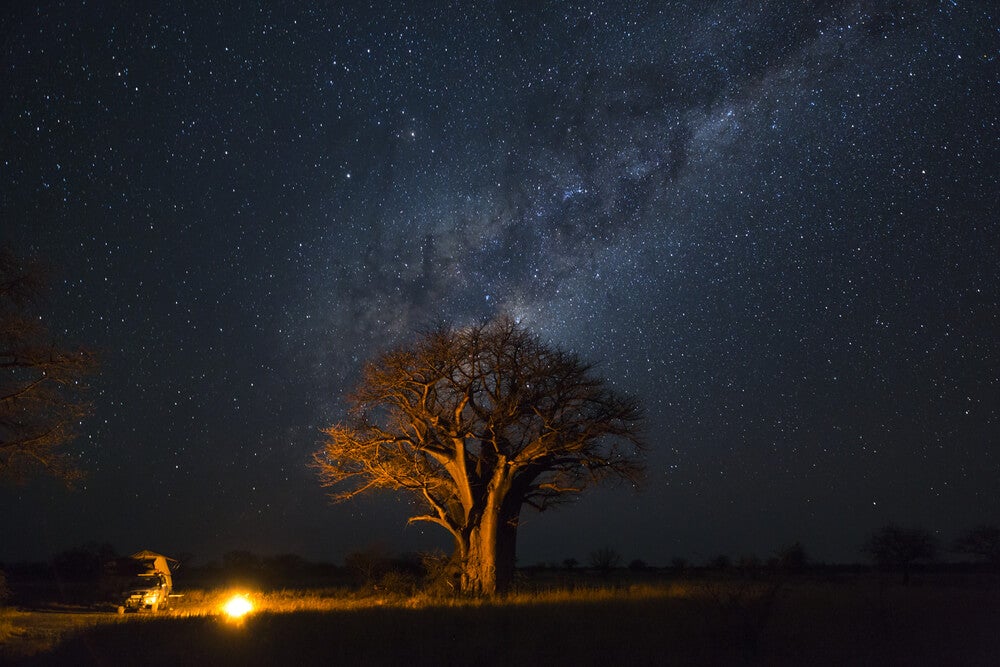If you find a baobab in your heart, take it whole root, because its seeds feed fear, insecurity, disappointment, anger, etc. Make like the Little Prince, who every morning took out all the seeds of the huge baobabs of his little planet, so that they do not get too big and their gigantic roots destroy what he loved so much.
There are logical and rational fears that guarantee our well-being, they are appropriate fears that regulate our survival, however, sometimes, almost without knowing how, these baobab seeds appear that invade everything.
- They are in the basement of our psychological garden.
- Growing quietly.
- But altering our balance and concentration.
“There are good seeds, good weeds and weeds, weeds. They sleep in the secret of the earth until one of them wakes up. It then stretches and timidly throws a harmless bud into the sun. Whether it’s rábanos or rose bushes, we can let it grow as we please. But when it comes to a bad plant, do we have to get it out quickly, as soon as we recognize it?The Little Prince?
Of all the reflections that Antoine de Saint-Exupéry left in Le Petit Prince, this is one of the most interesting. In the book, the little protagonist has daily collected seeds from his planet by feeding and watering the “good” seeds.
The bad ones were those of the baobabs, whom he had to eliminate completely and with his roots, before they destroyed their world from within. The good seeds were rosemary, his favorites.
This subtle metaphor symbolizes the image of our fears, the darkest areas where cognitive distortions are often fed, driven by anger, anguish or sadness that obscure and fill our mental palate with cracks.
We all have baobab in our hearts. It may be that only your seed remains, invisible, asleep, and without branches; others, on the other hand, may suffer the effects of their growth.
The impact of this baobab that extends its roots alters, changes and destabilizes everything, fears and grudges explode to break the internal order, logic, autonomy.
In El Principito, the protagonist even asks the pilot, at some point, if the lambs eat shrubs, and when the pilot says yes, he reacts with immense joy when he thinks that, finally, he can get rid of the threat of baobabs.
However, then the pilot corrects: a baobab is not a shrub, but a tree. Are they trees as big as churches, as big as one?Herd? Elephants could eat a whole one.
The Little Prince, imagining this scene, suggested that this might be possible by placing one elephant on top of each other, however, a few seconds later, he says with great certainty that the best strategy would be to avoid its growth.
After all, when a baobab grows too much, you can’t do anything Should we stop these destructive giants in their early days, when they’re still small, when they’re mere seeds?
“The soil of the earth was infested with baobab seeds. If we don’t remove baobab in time, it will never be possible to get rid of it again. It’s obstructing the whole planet. He drills it from his roots. too small and the baobabs too big, do they explode? The little prince?
There are people who see something else in the metaphor of the Prince’s baobab, some warn that, more than the seeds of our fears, these trees could be linked to evil itself.
A destructive force that sickens the heart and is able to commit the worst actions, shaping the most devastating scenarios of violence and destruction. The same ones we all have in our collective memory.
In the end, this baobab seed has always been and will be present in us, it is up to us to feed it and let it grow because, as on the planet of the Little Prince, there are good and bad seeds in each of them. We.
Whether they germinate and create strong roots, without a doubt, depends on several factors: our upbringing, our upbringing, our lived experiences, etc.
However, we must not forget that it is our responsibility to be good people and become gardeners to eliminate in time weeds, seeds that do not serve, those that destroy the environment and that break the natural balance of the environment our personal domain.
This skillful task is performed every day by the Little Prince, who takes away what he does not want and feeds what he likes most: his roses.
We don’t need lambs or an army of elephants on top of each other to do this cleaning task, if we have a baobab in our hearts, we have a responsibility to get it out in time, or rather not to feed its seed.
This maintenance task generates balance, wisdom and a sense of discipline, which allows us to be attentive to any change, to any unusual growth, to prevent small problems from becoming huge and terrifying baobabs.

